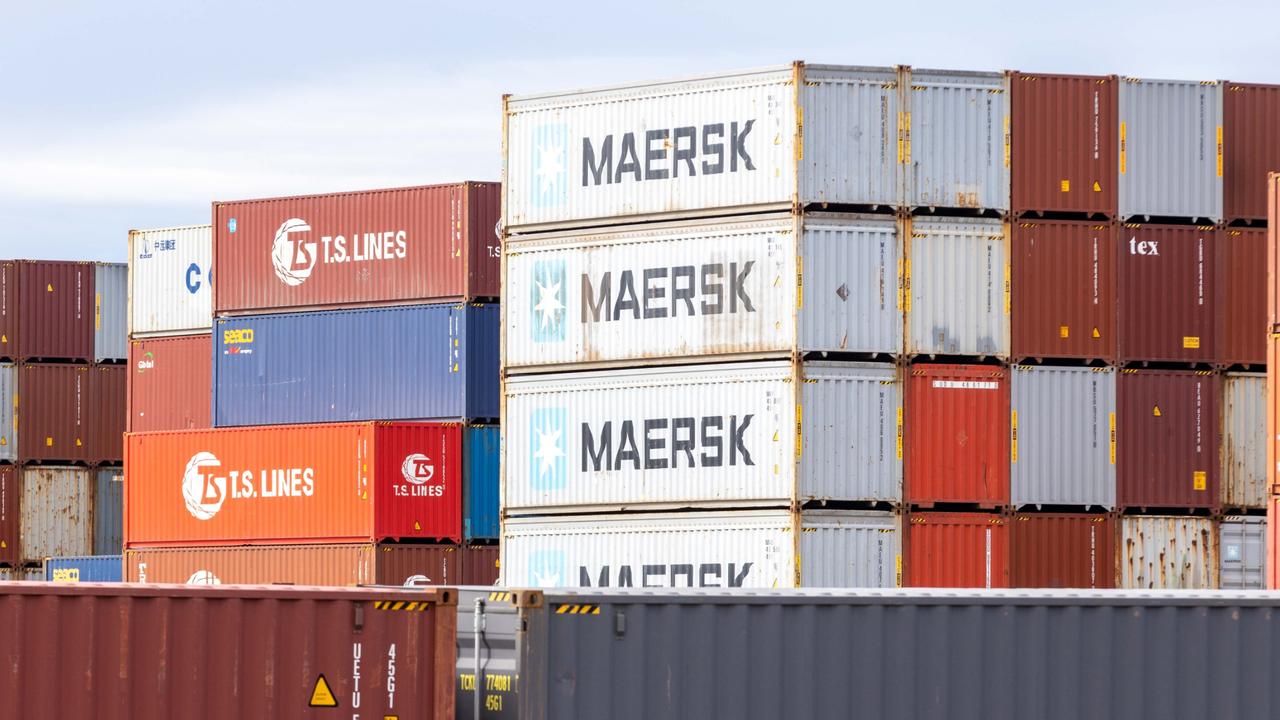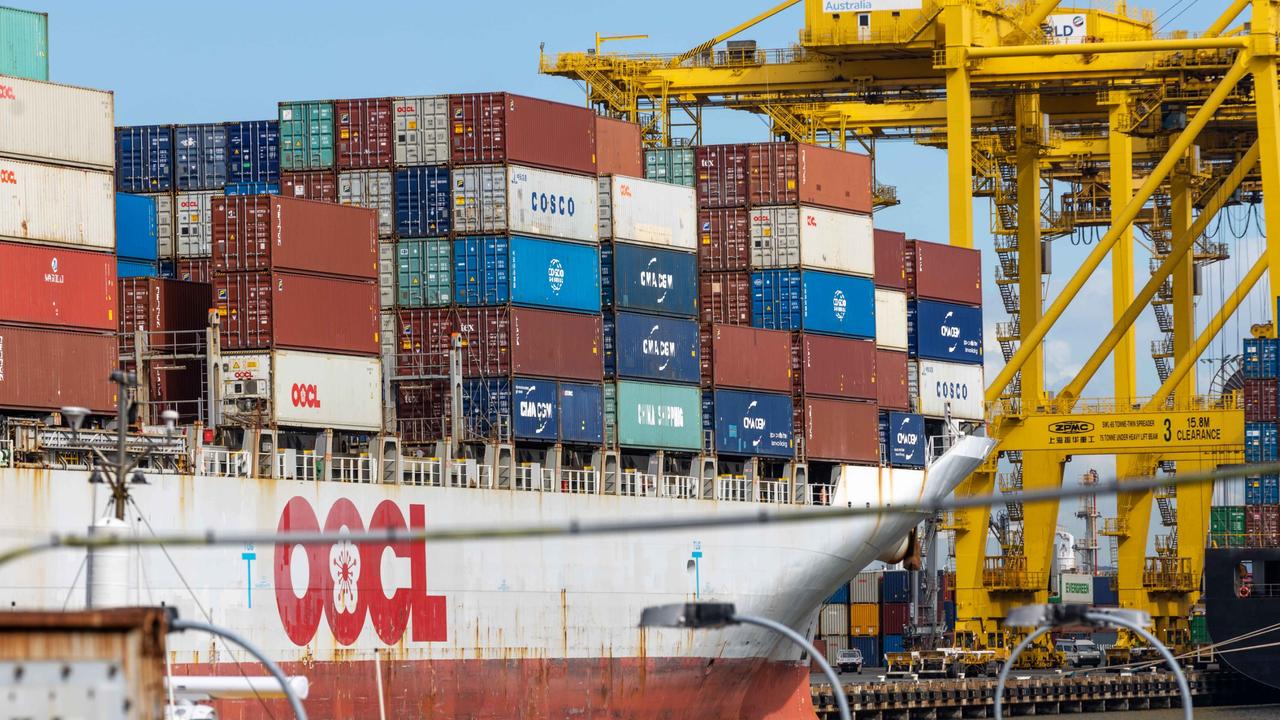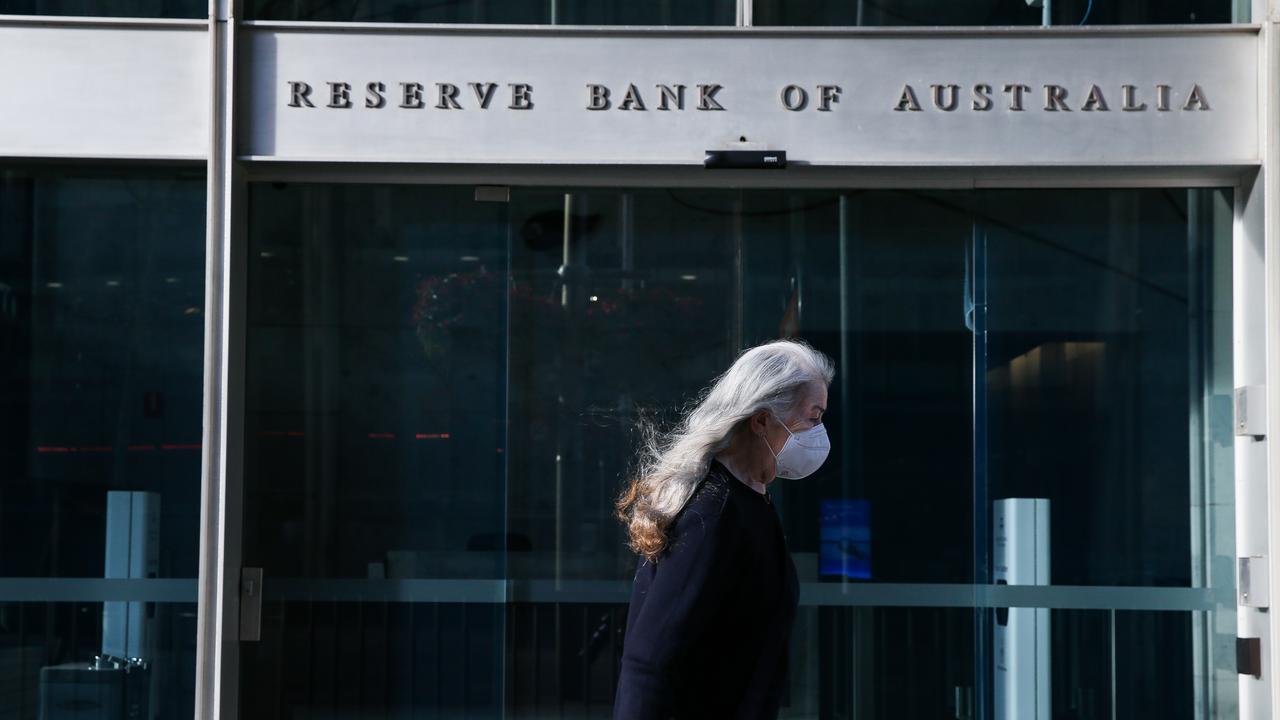ABS report finds trade surplus has fallen to $12.24 billion
Australian exports have taken another hit as the global economy continues to react to the war in Ukraine, an economist explains.
Australia’s trade surplus has fallen to $12.24 billion as exports of mineral fuels and mining goods continue to be impacted by the war in Ukraine.
The Australian Bureau of Statistics reported on Tuesday imports had risen by $445 million, driven by an increase in travel services, while exports had fallen by $793 million.
BIS Oxford Economics’ head of macroeconomic forecasting, Sean Langcake, said the boost in overseas travel since borders reopened has resulted in a positive outcome for imports of Australian goods and services.
Mr Langcake told NCA NewsWire the return of people from overseas, including China, will result in a boost to many sectors, including education, tourism and hospitality.

“We were quicker to get overseas than people were to come back to Australia,” Mr Langcake told NCA NewsWire.
“It’s the pent up demand for those who missed out on their holiday six to 12 months ago.
“Certainly 2023 isn’t going to be without its challenge but … I don’t see any reason where we won’t get to roughly the neighbourhood of where we were (before the pandemic).”
Monash Business School’s director of Asia Pacific Regulation Research Group, Dr Alice de Jonge, told NCA NewsWire there were “swings and roundabouts” with December’s data, especially as Australians head overseas.
“We’re spending more on services then we are exporting, so that would suggest an increase in spending overseas,” Dr de Jonge said.
“It means Australian money is not being spent locally to give a bit of energy to the local economy.
“It’s being spent revitalising south asian economies and the Japanese economy.
“If there were signs that Aussies weren’t going overseas but much preferring to tour locally, you would see the effect in the Australian economy.”
Mr Langcake said this was the third consecutive month where goods exports had continued to fall, but that it’s hard to gauge the long-term picture based on one month’s worth of data from December 2022.

“We’re coming back from the initial shock from the Ukrainian invasion and we’re now seeing a calming down in prices,” Mr Langcake said.
“A lot of that stuff is mining volumes.
“If China slows down, (Australian mining companies are) more likely to slow down to forego imports before exports from Australia.
“The big gas companies aren’t making major employment decisions because they’re not going to change their operations based on a one-month evaluation.”
Mr Langcake forecast export data would continue to come down in the coming months as the county continues to experience “a huge boost from the impact of war”.
“The bit that matters is the services side of things; it’s a bit of a blip (in this data),” he said.
“December was not a great figure … but this happens; you can have a big upswing before it balances out.”
The data revealed rural goods exports were down $250 million, following a drop in cereal grains and cereal preparations.

It comes as the Reserve Bank of Australia brought up the cash rate from 3.1 per cent to 3.35 per cent on Tuesday.
This marks the ninth time the interest rate has risen since May last year, with the Reserve Bank hiking interest rates by another 25 basis points.
Dr de Jonge said the interest rate hike will mean those with business mortgages will continue to struggle as workskills shortages continue.
She said there was hope though with the increasing return of international students to Australia in 2023.
“(The RBA decision) might help hold down inflation, but for those with mortgages including business owners and those who have local hospitality businesses, they’re going to be having to spend a lot more to stay in business,” Dr de Jonge said.




